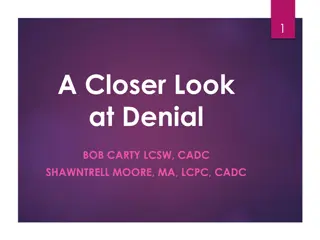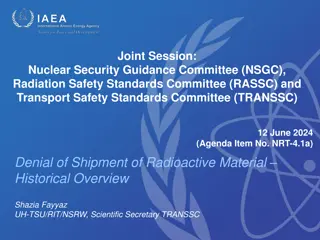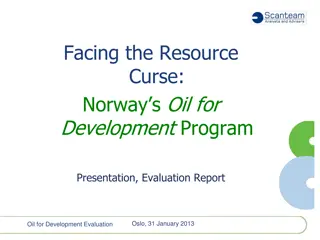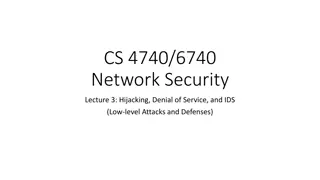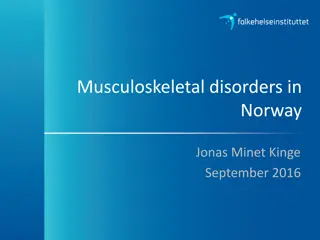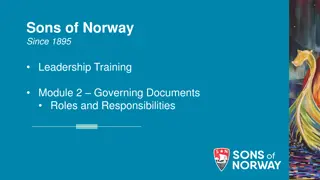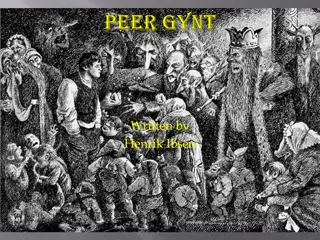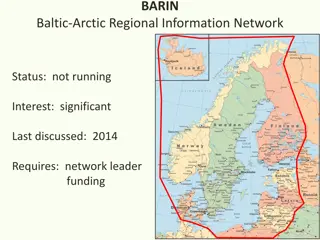
Addressing Denial of Harmful Sexual Behaviors in Young People
Explore the concept of denial in relation to harmful sexual behaviors in youth, its impact on intervention and assessment, how it manifests in behavior and speech, and the importance of moving towards acceptance and responsibility. Learn about the barriers denial creates, the role of family, and strategies for engaging young individuals in addressing their behaviors.
Download Presentation

Please find below an Image/Link to download the presentation.
The content on the website is provided AS IS for your information and personal use only. It may not be sold, licensed, or shared on other websites without obtaining consent from the author. If you encounter any issues during the download, it is possible that the publisher has removed the file from their server.
You are allowed to download the files provided on this website for personal or commercial use, subject to the condition that they are used lawfully. All files are the property of their respective owners.
The content on the website is provided AS IS for your information and personal use only. It may not be sold, licensed, or shared on other websites without obtaining consent from the author.
E N D
Presentation Transcript
Denial Norway Project Level Toolkit Emma King
What is Denial? Failure to accept responsibility for harmful sexual behaviours. Why is denial so important in working with young people? What impact does denial have on risk of further HSB? Why do we need young people to admit their HSB?
What Does Denial Look Like? How does a young person in denial present? How do they engage with professionals? What kinds of things do they say? How do they behave?
What does Denial Look Like? I didn t do it, I wasn t there complete denial I don t want to talk about it avoidance I only did . . . . minimisation I didn t do . . . But I did . . . partial denial It was her fault . . . blaming Or some YP may over-disclose or over admit to offences that they may not have committed
Denial Denial is not absolute - there can be varying levels of denial The YP may admit to some of the concerning behaviours Just because their account is different to the CPS documents may not mean they are in denial Remember offences may be historical and there could be reasons they cannot recall all specific details: substance use or trauma for example Just because a YP denies right now does not mean that they can t move forward in taking responsibility to some/all their HSB in time
How does Denial affect our work with Young People? What barriers does it create? How does it impact on assessment? How does it impact on intervention? What role do family play in denial? How does it impact on engagement of the young person with professionals? What impact does it have on the level of risk of further HSB?
Assumptions . . . Denial is almost always characterised as an obstacle to treatment progress, whereas acceptance of responsibility is typically considered a treatment goal. (Schneider and Wright, 2004) Denial is an intentional, calculated decision to deceive and manipulate. Those who deny refuse to address their HSB. Those who deny cannot undertake or benefit from treatment. Those who deny pose a high risk of further HSB.
Denial Current research does not show a correlation between a young person s denial of sexual offending & an increased risk of sexual re-offending Denial is a normative response to stress and admitting to offences may induce anxiety, shame, guilt and feelings of worthlessness Young people often struggle to admit their offences for fear of rejection from family, peers, community Young people commonly seek to deny their offence when in the criminal justice system - to staff/peers as a protective mechanism but may later be open in intervention work
Impact on Risk? There is a lack of consistent evidence indicating that denial and minimisation leads to increased recidivism Ware and Mann (2012)
Why do Young People Deny? What reasons might there be for denying HSB? Why is admitting HSB difficult? What influences denial? Who influences denial?
Why Deny? Reasons for denial/minimisation include: threats to self-esteem and self- image, fear of negative extrinsic consequences, adverse effects on convictions and sentencing, deficits in perspective taking, low motivation to stop offending (Lord & Willmot, 2004; Marshall, et al., 2009) Fear of rejection from parents/caregivers. Shame, guilt, confusion. Peer/media/cultural influences.
Why Deny? Influence of trauma Lack of appropriate sexual knowledge Cognitive functioning and developmental age Avoidance as a learned way of coping Emotional regulation difficulties Belonging and identity Safety fearful of trusting others Fear of rejection, harm, punishments Difficulties engaging with professionals Timing and context of interviews Readiness
Reactions from Professionals? How do professionals react when faced with a young person who denies their HSB? What approaches are unhelpful? What approaches might be helpful? How do we write about denial in reports?
How do we Engage Young People who Deny? Overview Building rapport Reassuring and addressing fears Understanding the function of denial Background and context Sensitive, empathic approach Consider timing and sequence of topics Challenging should be gentle at first Roll with resistance
Working with Denial Pacing and sequencing of assessment or intervention work is crucial. Work towards shared goals that feel safe to them - this can lead to being more open to addressing the specific HSB later in the therapeutic process. The relationship with a young person is critical building trust will enable the YP to engage. Helping the young person work towards wider positive goals is important such as promoting their experiences of fitting in and belonging through social inclusion and activities, improving their feelings of self-worth through educational attainment, or working towards getting them to a place of safety and stability through influencing their environment.
Working with Denial Important that the therapeutic process provides and environment of safety for the young person. Openness and learning are best facilitated when we feel at ease in our surroundings and with those working with us. This is not always easily achieved within the difficult circumstances in which we often first meet our young people. Identifying and addressing emotional regulation difficulties is often the first/key priority in intervention with young people with HSB. This can be linked to the onset of the HSB and to the barriers a young person may have in being able to admit their HSB. Intervention focusing on areas such as emotional regulation are often not seen as offence focused especially when a young person is in denial but it is an area that is key to understanding and addressing their HSB.
Working with Denial Young people who deny are often aware that they need to engage and fear the consequences of not doing so. Providing early reassurance that the aim is not just about getting them to admit can help them engage. Challenging their account constantly can often lead to hostility. Condoning their behaviour is also unhelpful. Agreeing to disagree or to put the offence account to one side can be helpful. Negotiate targets that are workable. Young people will often acknowledge mistakes they have made and can identify factors that lead to their mistakes. Use games and fun activities to help the young person engage and as a way of active learning. Building trust through honesty, empathy, listening, boundaries.
Working with Denial Address the barriers influencing denial but do this gently. Consider their past experiences and what denial is protecting them from. Help the young person identify what would be the consequences of them talking about the things that make them uncomfortable. Intervention can also focus on working with those around the young person to help identify and reduce risk factors. Family are often key in understanding HSB and multi-agency working with other professionals can be crucial in developing shared understanding and putting appropriate interventions in place.
Practical Session Tips Think about context of session where, when, who is present Start with a check-in 10 mins for YP to offload Emotional check-in enquire about what is going on for them and how they re feeling Encourage labelling of feelings and rating on scale of 0 10 to help monitor mood and triggers to emotional dysregulation Give them a time out opportunity a safe word or signal if they want to stop the session. If this happens so an emotional check-in.
Exercises to Help Understand Barriers to Disclosure and Engage the YP Exercise: With reassurance that you re not going to ask for specific details today, ask the YP to think about why talking about it is difficult. What would it feel like to talk about the difficult stuff? How would it make you feel? How would other people react? Etc. Exercise: 3rdperson account create a fictional character who has committed a similar offence. Ask the YP to think about what type of person he is, how he feels about himself, how his family/friends feel about him and what he had done, what his future looks like, what his fears and hopes are etc.
My Tips Listen Don t make assumptions Remember that any assessment of them is only valid for a short time as they will change a lot Be interested in them as young people not offenders Play games, have fun in sessions, use drawings and practical exercises Be consistent, boundaried, honest Try to understand the reasons behind their behaviours Remember we re asking them to talk about things that can make them uncomfortable Remember they are teenagers
Writing about Denial How do we write about denial in an assessment report? How can we assess risk in a YP who denies? Is it still possible to write an offence analysis? What positives can we write about?
Writing about Denial Unhelpful: The YP denies their offence therefore an offence analysis is not possible. Unhelpful: The YP is manipulative and refuses to give an account of their actions. Unhelpful: The YP is not able to talk about his offences therefor is not able to benefit from intervention work. Unhelpful: The YP s refusal to admit responsibility for his actions put him at high risk of further offending.
Writing about Denial More helpful: The YP has not yet been able to give a detailed account of their offending. It is likely that this is because . . . . What we do know about the circumstances is . . . . More helpful: The YP has started the process of engaging with professionals in regards to his HSB, he has areas to work on which include . . . . More helpful: The YP s difficulty discussing his offences is linked to fears of . . . More helpful: The YP was able to provide useful insight to many areas of his life and contributory factors to his offending . . . More Helpful: Whilst the YP has not yet been able to disclose a full offence account due to . . .. He has made progress in . . . .
Summary HSB in young people is complex and denial can be part of this Denial can result from feelings of fear and anxiety the young person has Young people who deny their HSB may recognise some areas of intervention Understanding the functions of denial will help in addressing HSB Building rapport, reassuring anxieties and providing a safe therapeutic environment can help the YP engage
Summary Changing the focus or sequencing of the work can help Rolling with resistance can be effective Denial is not static and is likely to change over time Emotional management is often the key intervention need for young people with HSB and those in denial Intervention should include those around a YP Intervention can still take place

